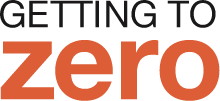The 2023 Getting to Zero Forum, taking place May 10-12 in Minneapolis, MN, is proud to feature programming on some of the most in-demand topics within the built environment – learn about our highlighted offerings below.
May 10 In-Person Workshop: An Interactive Journey to Building Essential Embodied Carbon Knowledge
(3.5 AIA LU|HSW CEUs)
Embodied carbon is quickly becoming a crucial topic for designers and policymakers as the industry focuses on building decarbonization. This interactive workshop, sponsored by Breakthrough Energy, will take attendees on a journey to uncover strategies for reducing embodied carbon in building design and construction, and jurisdictional policies.
Time: 9:00 am-12:30 pm
Cost: $150
Related Sessions:
From Cradle to Grave (and Back Again): Decarbonizing the Lifecycle of Materials
(1.5 AIA LU|HSW CEUs)
In this decade of action, we cannot ignore that retrofitting an existing building emits between 50% and 75% less carbon than constructing the same building new. Site selection plays nearly as important a role as material selection. Presenters will provide case studies of all sizes including existing building reuse, utilizing local and bio-based products, and designing with space efficiency to achieve ultra low carbon buildings. Hear about new research as well as practical strategies for making informed decisions about embodied carbon, ESG financing challenges, and achieving equitable outcomes.
The Carbon Tug-of-War: Balancing Embodied and Operational Carbon in Buildings
(1.5 AIA LU|HSW CEUs)
When it comes to the environmental impact of buildings, it’s not just about operational carbon – it’s also about the embodied carbon. Balancing these two factors can be a complex and sometimes conflicting task. Case studies of operating buildings will explore the balance of embodied and operational carbon in building design and construction. Presenters will share tools and resources available for assessing the environmental performance of different materials and systems, and provide practical tips for making informed decisions about which materials and technologies to use on your next project.
Code Breakers: How to Reduce Embodied Carbon in Building Codes
(1.5 AIA LU|HSW CEUs)
Building codes and policies play a critical role in shaping the environmental performance of our buildings. But how can we use these policies to reduce embodied carbon and make our buildings more sustainable? In this session, presenters will share how they developed state and federal policies to reduce embodied carbon through national building codes, California’s green code, and Minnesota’s B3 building guidelines. Additionally, they will discuss the history, community engagement, evolution, successes, and best practices of the policies that can lead to the maximum reduction in embodied carbon.
May 10 In-Person Workshop: Coming to an Understanding on Equity and Equitable Decarbonization
(3.5 AIA LU|HSW CEUs)
Join Midwest Building Decarbonization Coalition for an in-depth and hands on workshop on equitable decarbonization. Participants will leave the session with answers to questions like: What does a community that is equitably decarbonized look like versus one that isn’t? How can community members advocate for decarbonization in a way that is equitable for all members of the community? Additionally, participants will be challenged to consider the specific road blocks in their work for equitable implementation and how to take action.
Time: 9:00 am-12:30 pm
Cost: $75
Related Sessions:
Cutting Carbon to Cultivate Community Connection
(1.5 AIA LU|HSW CEUs)
Centering equity is critical for program success and for creating a healthier, more sustainable, and just world. Our industry’s efforts to decarbonize buildings must make the connection between policies, programs, and projects and the movement for climate justice. This panel will include representatives of the faith community to describe how that constituency’s characteristics position them well to address the climate crisis, as well as panelists that have piloted the use of data to best target program offerings for equity and resiliency.
Building Communities that Survive and Thrive
(1.5 AIA LU|HSW CEUs)
The built environment encompasses much more than glass, concrete, and I-beams, which is why targeting net zero carbon is not enough. Even when constructed to meet high performance standards, the built environment can impact health outcomes and exacerbate inequality. This session presents resiliency strategies that range from design interventions on the building scale to thinking about critical services like healthcare and protecting vulnerable populations. Presenters will uncover intersections of health, equity, and resiliency that position communities to thrive while advancing decarbonization goals.
Prioritizing Affordable Multifamily Housing in the Energy Transition
(1.5 AIA LU|HSW CEUs)
An equitable and just transition towards building electrification requires prioritizing and addressing barriers to electrification for low-income communities at the outset. This also includes prioritizing the production and preservation of affordable, climate-friendly homes across the country. Today, 26 million low-income homes reliant on fossil fuels face energy insecurity, lacking the resources for more efficient and healthier appliances such as heat pumps and induction stoves. This session will explore how upgrading low-income multifamily subsidized and unsubsidized housing can reduce existing energy burdens across the market. Participants will workshop creative solutions, rooted in the nuances of several housing ownership models and financing regulations that govern them, to determine potential solutions to existing market challenges.
An Equitable Home Electrification Toolkit for Communities
(1.5 AIA LU|HSW CEUs)
Join representatives from RMI and Emerald Cities Collaborative to learn about their toolkit for local governments and community partners to co-develop a housing electrification policy roadmap centered in equity. The toolkit offers actionable steps toward policy development and is designed to maximize engagement and co-ownership between municipalities and frontline community groups. Presenters will also share lessons learned from leading ten community teams through this process. Participants will leave with knowledge and resources that can guide their efforts to equitably advance housing electrification.
Join us for these sessions and more by registering to join us for the 2023 Getting to Zero Forum, May 10-12. Both in-person and virtual passes are available. Learn more about registration options here.


